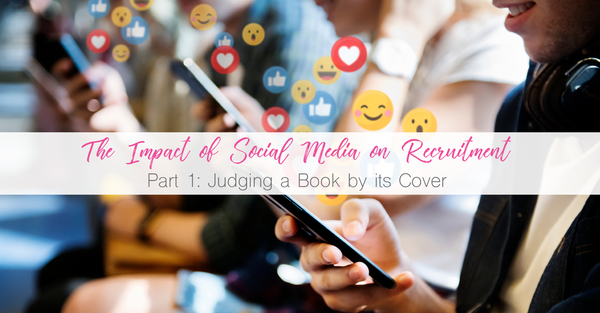Drop off your CV
We serve the global HR community through our offices located in Delhi, Hong Kong, London, New York, São Paulo and Singapore and have placed HR leaders in over 30 countries.
It is widely recognised that the rise of social media has impacted and disrupted the recruit...

It is widely recognised that the rise of social media has impacted and disrupted the recruitment process. One of the most significant changes is how easy it has become to quickly find and view an individual’s appearance on social media apps and websites. This has in itself created a problem that we can no longer avoid. Years ago agents and companies used to take pictures of likely candidates but this practice was stopped to avoid selecting people based on how they looked. However, as anyone is able to easily search for people on sites such as LinkedIn, Facebook, Instagram et al. we are now left with a much more challenging issue to deal with that is much harder to control.
Research by Stephen Martin and Joseph Marks shows how humans tend to respect men with certain physical characteristics. They identified that taller and more attractive men earn more than their shorter, plainer colleagues. Further research on CV’s sent out to a range of independent companies identified that applicants deemed attractive by independent scorers were 20% more likely to get an interview than the same application without a photo. For women this got worse, with 26% of “unattractive” men being contacted against just 7% of “unattractive” women.
So what are we supposed to do? Like most of us, employers also have access to social media. Whether it is right for them to look at an individual’s pictures is a different question but, LinkedIn and Facebook are continuously being used to find out more about someone or what they look like. What I’d urge people to do is focus on what you can control. Having a total head transplant isn’t a probable solution but getting a professional headshot and ensuring that you look presentable totally is. I’d also urge you to have greater management on what is personal and what it professional. LinkedIn is for professional networking and I expect a little “stalking”, however your personal sites should remain just that and it is down to you to have that control.
Will AI help? Potentially we could utilise AI tools, which can remove unconscious bias from the recruitment process. In saying that, while a machine can select a person with a good degree regardless of what they look like, it can’t stop the bias that exists around the selection of a candidate based on their education. Interestingly Jeff Weiner (CEO, LinkedIn), spoke about the “Network Gap” that exists when you have been to a good school and good university against someone that hasn’t had that privilege and might have had to go to a different school or taken a different route to get their education. We don’t want bias, but from listening to Jeff and other CEO’s, people want to work for companies that are human and therefore are we potentially better off allowing for some bias (because we can’t remove it completely) and taking this into account than the more clinical route of machine selection which has bias, but in a slightly different way?
This blog is the first in a four part series in which we are exploring the impact of social media on recruitment. The next three instalments will be released throughout the first half of 2020. Follow Elliott Scott HR on LinkedIn to know when.